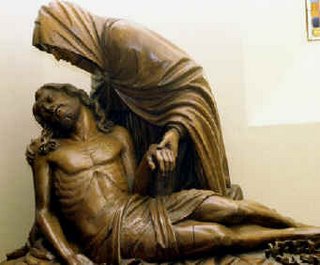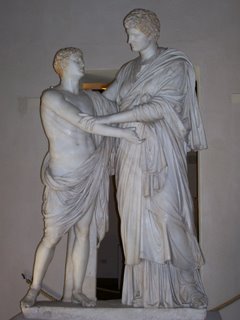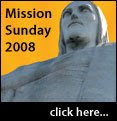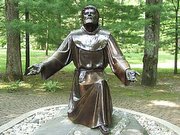United
Yesterday was a very long day and last night correspondingly short. It’s 05.30 as I start to write this. Yet, the busy-ness has been worth it! Yesterday evening there was the pleasure of seeing the Pope and the Ecumenical Patriarch together, enjoying each other’s company and trying to outdo each other in friendliness and respect. It was a beautiful historical moment.
Because I do so many commentaries for papal ceremonies, it’s not surprising that I’ve become very familiar with Pope Benedict’s facial expressions. It was, therefore, easy to see that when he arrived at the Patriarchate, he was very, very tired… and who could blame him? He’s not only had a packed schedule: it’s also been critically important and therefore a strain in itself.
The Pope and the Patriarch were to pray together, according to the official timetable, but it was more than that. The Pope is himself a patristic scholar and so it was obvious from the start that he was comfortable in surroundings which, to the vast majority of Catholics, were unfamiliar.
We were fortunate insofar as the Orthodox and the Catholic Churches have been so concerned that this meeting, described as ‘supremely important’, should be successful, that the Orthodox Church has sent six of its top people to help us with the commentaries. For the English commentary, we’ve been privileged to work with Rev. Dr. John Chrissangvis, the Advisor on the Environment to the Ecumenical Patriarch. It’s been fascinating. He’s been describing the setting, symbolism, music and events in a way that we, as Catholics, could never have done: the Orthodox Church is his life just as much as the Catholic Church is ours.
As last night’s prayer service began, it was interesting to see the change in the Pope. Two of the hymns had been especially written for the occasion by the monks at Mount Athos, but one of them was in honour of St. Benedict. It was lovely to see the genuine appreciation of this hymn by the Holy Father, who could, of course, understand what he was hearing. There was the combined appreciation of the theologian and the musician and so he forgot his tiredness. The familiar little discreet smile of enjoyment of moments when he can’t just grin was lovely to see.
What struck me about the whole of the proceedings was the equality between the Pope and the Patriarch. They walked in together, recognised each other’s equal authority and were perfectly comfortable and unostentatious in their regard for each other. The papal entourage and that of the Patriarch were just as much at home with each other, as was obvious the moment that the service finished and they had a few moments to come together and chat. There was laughter and ease: people who know where they are going and are serious about wanting East and West to come back together again. In fact one beautiful little touch to the occasion was that the cardinals and bishops had been positioned on the Patriarch’s side of the altar, whilst the members of the Holy Synod were on the right-hand side of the Pope.
We were simply conscious that we were watching history unfold. A commentary is not the easiest of things to do because there are so many things to be done at once: watching the ceremonies, do the commentary, explain everything for a vast international audience on both radio and television (which need very different approaches) and keep control of the huge assortment of bits of paper… yet there was a real sense of privilege, of “it is good for us to be here”. East and West can come back together and with Pope Benedict and Patriarch Bartholomew, we’re a lot closer to that moment of joy.
God bless,
Sr. Janet


















